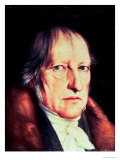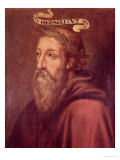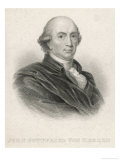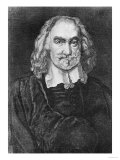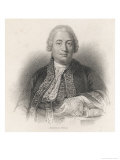|
|
|
|
|
Jurgen Habermas
b. 6-18-1929; Dusseldorf, Germany
Sociologist, philosopher, and professor Jurgen Habermas is noted “for his theory on the concepts of ‘communicative rationality’ and the ‘public sphere’”.
Jurgen Habermas quote ~
• “Christianity has functioned for the normative self-understanding of modernity as more than a mere precursor or a catalyst. Egalitarian universalism, from which sprang the ideas of freedom and social solidarity, of an antonomous conduct of life and emancipation, of the individual morality of conscience, human rights, and democracy, is the direct heir to the Judaic ethic of justice and the Christian ethic of love. This legacy, substantially unchanged, has been the object of continual critical appropriation and reinterpretation. To this day, there is no alternative to it. And in the light of the current challenges of a postnational constellation, we continue to draw on the substance of this heritage. Everything else is just idle postmodern talk.” ~ Conversation about God and the World. Time of transitions. Cambridge: Polity Press 2006, p. 150-151
|
|
|
|
Georg Wilhelm Friedrich Hegel
b. 8-27-1770; Stuttgart, Germany
d. 11-14-1831; Berlin
G.W.F. Hegel developed a philsophical system exploring relation of mind and nature and the subject and object of knowledge with concepts of speculative logic or “dialectic” characterized as a three-step process of “thesis, antithesis, synthesis”, “absolute idealism”, “Spirit”, negativity, sublation, the “Master/Slave” dialectic, “ethical life”, along with the importance of history.
G.W.F. Hegel quotes ~
• “Education is the art of making man ethical.”
• “The history of the world is none other than the progress of the consciousness of freedom.”
• “History, is a conscious, self-meditating process — Spirit emptied out into Time.”
• “Mark this well, you proud men of action! you are, after all, nothing but unconscious instruments of the men of thought.”
• “What experience and history teach is this — that nations and governments have never learned anything from history, or acted upon any lessons they might have drawn from it.”
• “The force of mind is only as great as its expression; its depth only as deep as its power to expand and lose itself.”
• “The essence of the modern state is the union of the universal with the full freedom of the particular, and with the welfare of individuals.”
• “Not curiosity, not vanity, not the consideration of expediency, not duty and conscientiousness, but an unquenchable, unhappy thirst that brooks no compromise leads us to truth.”
• “Nothing great in the World has been accomplished without passion.”
• The significance of that 'absolute commandment', know thyself — whether we look at it in itself or under the historical circumstances of its first utterance — is not to promote mere self-knowledge in respect of the particular capacities, character, propensities, and foibles of the single self. The knowledge it commands means that of man's genuine reality — of what is essentially and ultimately true and real — of spirit as the true and essential being.
• “The true is the whole.”
• “Reading the morning newspaper is the realist's morning prayer. One orients one's attitude toward the world either by God or by what the world is. The former gives as much security as the latter, in that one knows how one stands.”
• “The life of God — the life which the mind apprehends and enjoys as it rises to the absolute unity of all things — may be described as a play of love with itself; but this idea sinks to an edifying truism, or even to a platitude, when it does not embrace in it the earnestness, the pain, the patience, and labor, involved in the negative aspect of things.”
• The Accessible Hegel
|
|
|
|
Martin Heidegger
b. 9-26-1889; Mebkirch, Germany
d. 5-26-1976; Freiburg im Breisgau, Baden-Württemberg, Germany
Philosopher Martin Heidegger is known for his existential and phenomenological explorations of the “question of Being.”
Martin Heidegger quotes ~
• “Transcendence constitutes selfhood.”
• “Why are there beings at all, and why not rather nothing? That is the question.”
• “The human being is not the lord of beings, but the shepherd of Being.”
• “The most thought-provoking thing in our thought-provoking time is that we are still not thinking.”
• “Everywhere we remain unfree and chained to technology, whether we passionately affirm or deny it. But we are delivered over to it in the worst possible way when we regard it as something neutral; for this conception of it, to which today we particularly like to do homage, makes us utterly blind to the essence of technology.”
• “Philosophy will not be able to effect an immediate transformation of the present condition of the world. This is not only true of philosophy, but of all merely human thought and endeavor. Only a god can save us. The sole possibility that is left for us is to prepare a sort of readiness, through thinking and poeticizing, for the appearance of the god or for the absence of the god in the time of foundering [Untergang] for in the face of the god who is absent, we founder. Only a God Can Save Us.”
• “The possible ranks higher than the actual.”
• “Everyone is the other, and no one is himself. The they, which supplies the answer to the who of everyday Da-sein, is the nobody to whom every Da-sein has always already surrendered itself, in its being-among-one-another.”
|
|
|
|
Heraclitus of Ephesus
b. c. 535 BC; Greece
d. c. 475 BC
Pre-Socratic Greek philosopher Heraclitus is famous for his insistence on ever-present change in the universe, and believed in the unity of opposites, stating that “the path up and down are one and the same”.
Heraclitus, referred to as the “weeping philosopher,” and Democritus, the “laughing philosopher”, are often depicted together.
Heraclitus quotes ~
• “Change alone is unchanging.”
• “If you do not the expect the unexpected you will not find it, for it is not to be reached by search or trail.”
• “No man ever steps in the same river twice, for it's not the same river and he's not the same man.”
• The Art and Thought of Heraclitus: An Edition of the Fragments with Translation and Commentary
|
|
|
|
Johann Gottfried Herder
b. 8-25-1744; Mohrungen, Kingdom of Prussia
d. 12-18-1803; Weimar
Philosopher, theologian, teacher, and literary critic Johann Gottfried Herder is associated with the Enlightenment, Sturm und Drang (Storm and Stress), and Weimar Classicism. Herder greatly influenced young Goethe, Achim von Arnim, and Clemens von Brentano.
Herder quotes ~
• “Say oh wise man how you have come to such knowledge? Because I was never ashamed to confess my ignorance and ask others.”
• Selected Writings on Aesthetics, Johann Gottfried Herder
|
|
|
|
Thomas Hobbes
b. 4-5-1588; Westport near Malmesbury, England
d. 12-4-1679
Thomas Hobbes, who described human nature as self-interested cooperation, contributed to the fields of history, geometry, physics of gases, theology, ethics, general philosophy, and political science, is best remembered for his 1651 book Leviathan which established the thought for most of Western political philosophy from the perspective of social contract theory.
Thomas Hobbes quotes ~
• “Curiosity is the lust of the mind.”
• “Science is the knowledge of consequences, and dependence of one fact upon another.”
• Leviathan: Or the Matter, Forme, and Power of a Commonwealth Ecclesiasticall and Civil
|
|
|
|
David Hume
b. 4-26-1711; Edinburgh, Scotland
d. 8-25-1776; Edinburgh
David Hume, Scottish philosopher, economist, and historian, is considered one of the most important figures in the history of Western philosophy.
David Hume quotes ~
• “A propensity to hope and joy is real riches; one to fear and sorrow real poverty.”
• “The life of man is of no greater importance to the universe than that of an oyster.”
• “Everything in the world is purchased by labor.”
• “Generally speaking, the errors in religion are dangerous; those in philosophy only ridiculous.”
• “Be a philosopher but, amid all your philosophy be still a man.”
• “Beauty is no quality in things themselves: it exists merely in the mind which contemplates them.”
• “Morals excite passions, and produce or prevent actions. Reason of itself is utterly impotent in this particular. The rules of morality, therefore, are not conclusions of our reason.”
• motivational poster with Hume quote - “The greater the obstacle, the more glory in overcoming it.”
• An Enquiry Concerning Human Understanding (The Clarendon Edition of the Works of David Hume)
|
|
|
|
Edmund Husserl
b. 4-8-1859; Prossnitz, Austria
d. 4-28-1938; Freiburg, Germany
Philosopher and mathematician Edmund Husserl was the founder of the 20th century philosophical school of phenomenology.
He believed experience was the source of all knowledge and worked on a method of “phenomenological reduction” where a subject may come to know directly an “essence”.
Edmund Husserl quote ~
• “I must achieve internal consistency.”
|
|
|
|
|
|
|
previous page | top | next
social studies > list notable philosophers > a | b | c | d | e | f | g | H | i-l | m | n-o-p | q-r | s | t-z < science
|
|
I have searched the web for visual, text, and manipulative curriculum support materials - teaching posters, art prints, maps, charts, calendars, books and educational toys featuring famous people, places and events - to help teachers optimize their valuable time and budget.
Browsing the subject areas at NetPosterWorks.com is a learning experience where educators can plan context rich environments while comparing prices, special discounts, framing options and shipping from educational resources.
Thank you for starting your search for inspirational, motivational, and educational posters and learning materials at NetPosterWorks.com. If you need help please contact us.
|
|
|









